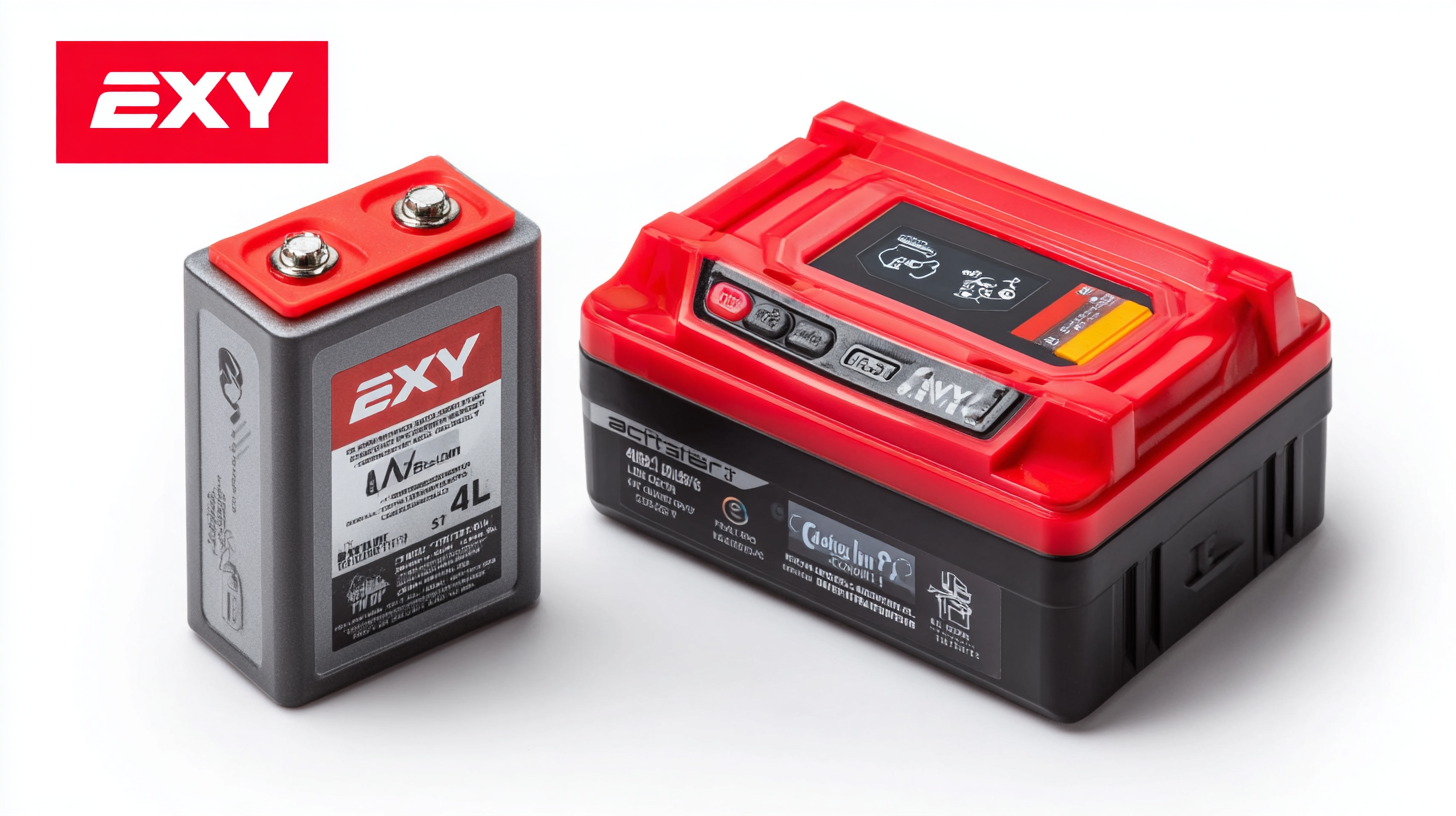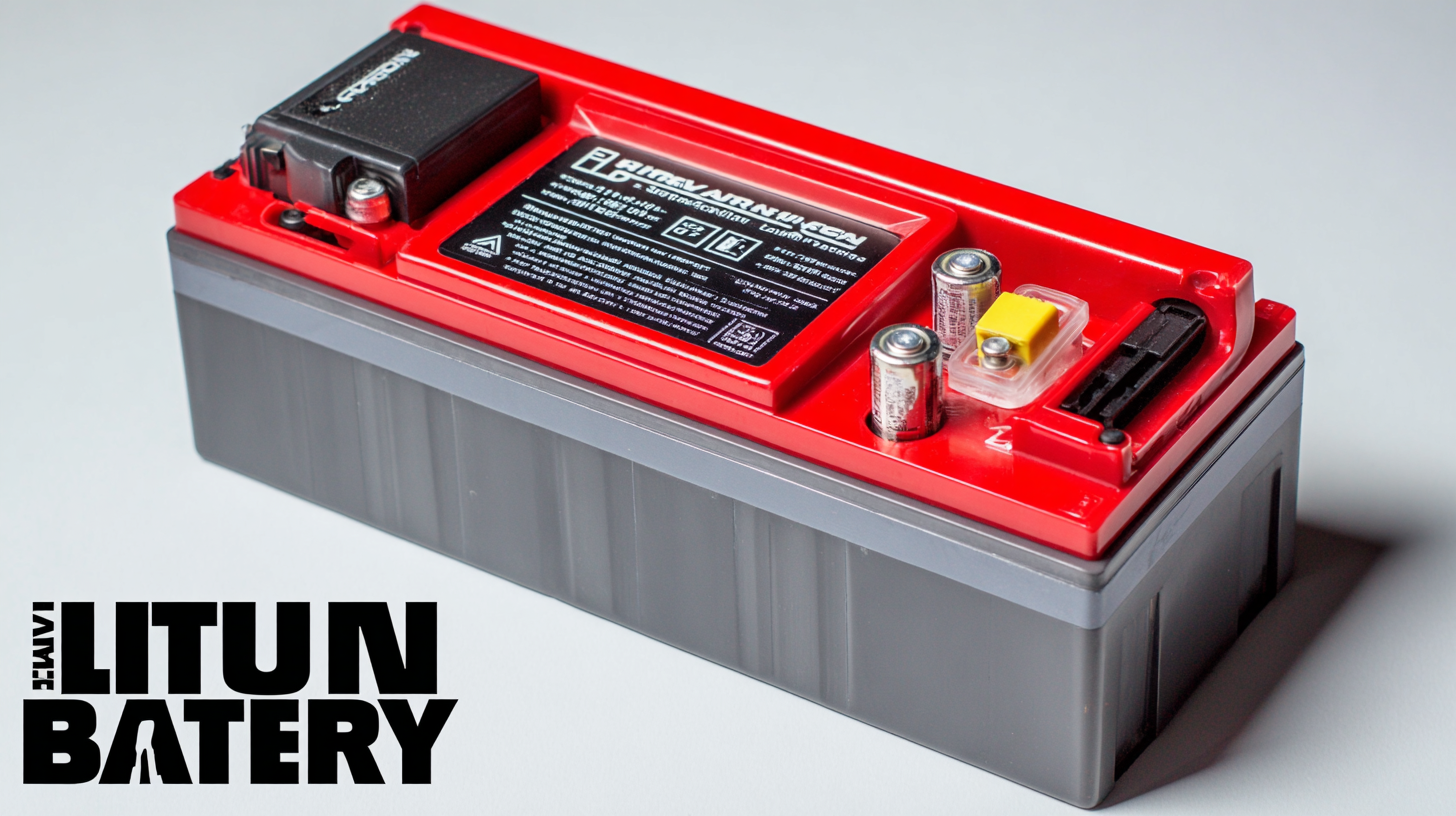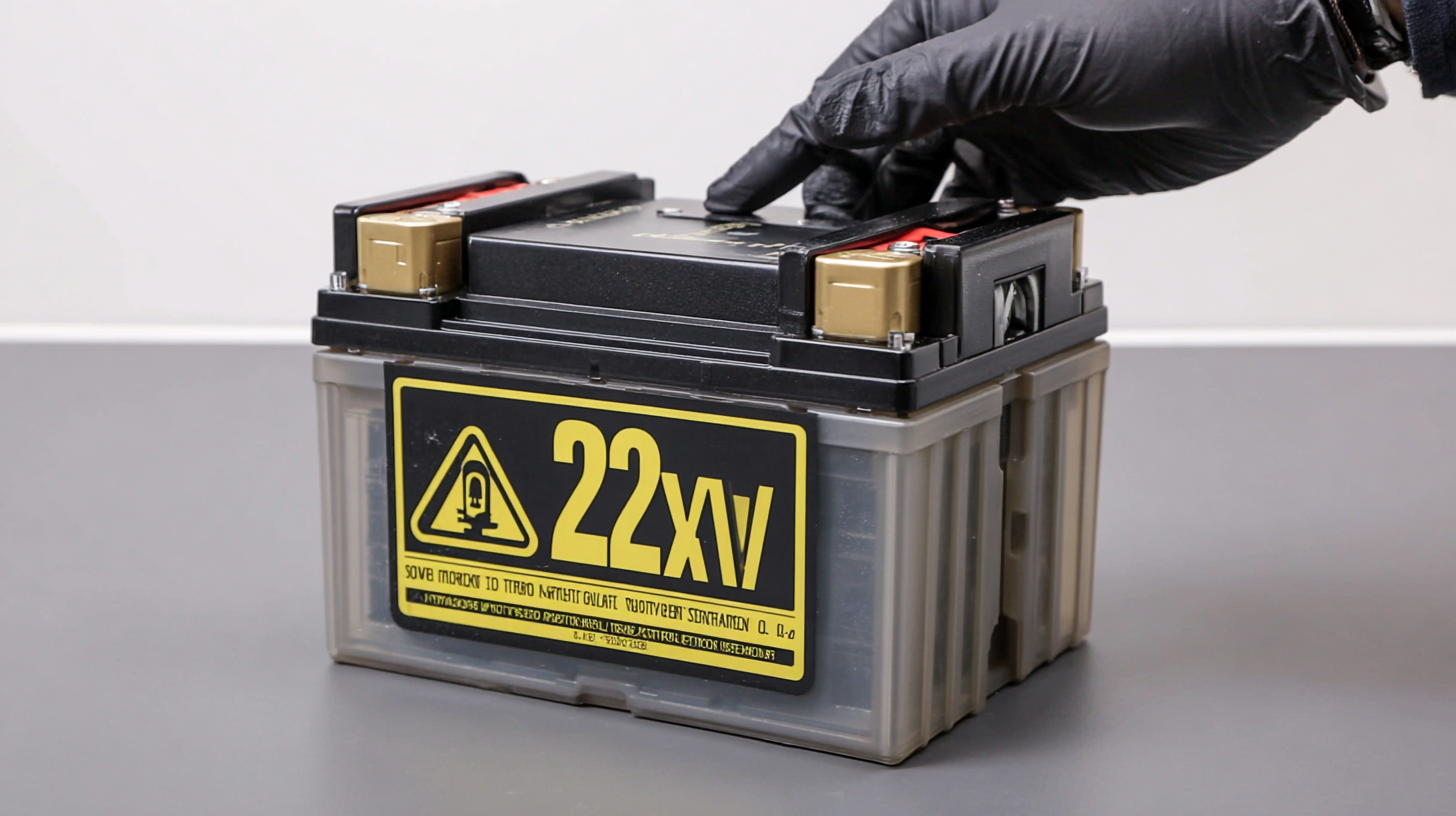In today's global market, ensuring that your products meet international import and export standards is crucial for successful business operations, particularly for high-demand items like the 12v Lithium Ion Battery. As industries increasingly lean towards eco-friendly and efficient energy solutions, the importance of compliance with international regulations cannot be overstated.

This tutorial aims to guide manufacturers and suppliers through the essential steps needed to certify that their 12v Lithium Ion Batteries not only meet but exceed these standards. From understanding safety protocols to navigating complex documentation processes, we will provide practical insights into ensuring seamless international trade.
Adopting these practices can enhance product credibility, minimize legal risks, and ultimately foster stronger market presence. Join us as we explore how to get your 12v Lithium Ion Battery ready for the global stage.
Compliance with international import and export standards for 12v lithium-ion batteries is crucial for manufacturers and distributors aiming to thrive in a growing market. These standards not only enhance product safety but also align with sustainability regulations that are becoming increasingly stringent globally. For instance, the New EU Batteries Regulation emphasizes enhanced sustainability, recycling, and safety requirements, which affect the lifecycle of batteries from production to disposal. By adhering to these standards, businesses can improve their marketability and consumer trust while reducing their environmental footprint.
Tips for achieving compliance include conducting regular audits of manufacturing processes to ensure they meet international specifications, and staying updated on emerging regulations such as the Corporate Sustainability Reporting Directive (CSRD) in the EU. Additionally, fostering transparency in the supply chain can help mitigate risks associated with counterfeit products, which pose significant safety hazards. Manufacturers should also invest in circularity practices, promoting recycling and the use of sustainable materials in battery production, aligning with the global push for decarbonization.
In an era where sustainability is paramount, ensuring compliance with international import and export standards provides businesses with a competitive edge. As the demand for electric vehicles and renewable energy solutions grows, the emphasis on resilient, sustainable, and circular battery solutions will continue to shape industry practices. By focusing on these key areas, manufacturers can contribute to a more sustainable future while navigating a complex regulatory landscape.
Meeting international import and export standards is crucial for manufacturers of 12v lithium-ion batteries. By adhering to these regulations, companies not only ensure their products can enter foreign markets without delays but also build a reputation for quality and safety. This compliance serves as a testament to the battery's reliability, ultimately giving consumers confidence in their purchases. When a product meets recognized standards, it reassures customers that they are investing in a safe and efficient energy solution.
In addition to enhancing market access, conforming to these standards fosters consumer trust, which is invaluable in today's competitive landscape. As more consumers become environmentally conscious and prioritize sustainability, products that meet international benchmarks signal a commitment to ethical manufacturing practices. When companies transparently showcase their compliance with safety and environmental regulations, they attract a dedicated customer base that values responsibility in product sourcing. Thus, investing in certifications not only unlocks new market opportunities but also fortifies a company's standing in the eyes of discerning consumers.
Adhering to global battery regulation guidelines not only ensures safety and compliance but also brings substantial economic advantages. The lithium-ion battery market is expected to grow significantly, reaching approximately $100 billion by 2025, as reported by the International Energy Agency. Companies that align their manufacturing processes with international standards are better positioned to compete in this expanding market, benefiting from reduced tariffs, smoother cross-border transactions, and enhanced consumer trust.

Tip: Implement a thorough quality management system to ensure that every battery you produce meets the required standards set by organizations such as the International Electrotechnical Commission (IEC). This not only aids compliance but can also minimize production costs over time.
Moreover, adhering to international guidelines can open the door to new markets. According to a report by the Battery Association, batteries that comply with stringent regulations can attract more business from regions with strict import laws, such as the European Union. This compliance not only mitigates risks of product recalls but also streamlines the licensing process, allowing companies to gain a competitive edge.
Tip: Stay updated on international regulatory changes. Regular training sessions for your team on compliance standards are essential to ensure that everyone is aligned with the latest guidelines and practices. This proactive approach can significantly reduce the risk of non-compliance penalties.
Navigating the complex landscape of international import and export standards is crucial for the lifecycle and sustainability of 12v lithium-ion batteries. Compliance not only ensures regulatory adherence but also enhances product credibility. According to a report by the International Energy Agency (IEA), approximately 50% of lithium-ion battery manufacturers face financial penalties due to non-compliance with these standards. This can significantly affect their market position, making adherence an essential part of business strategy.
To maintain compliance and support sustainability, manufacturers can implement a robust quality management system (QMS). This QMS should regularly evaluate supply chain practices and materials, as well as keep up to date with international standards such as ISO 14001 for environmental management. A comprehensive compliance strategy can reduce waste by up to 30%, according to research from the World Economic Forum, supporting not only regulatory demands but also the principles of sustainability.
**Tip 1:** Conduct regular audits to ensure that your products meet the latest international standards. This proactive approach helps prevent costly penalties and enhances product reliability.
**Tip 2:** Invest in sustainable materials and manufacturing processes. Utilizing recycled materials can reduce environmental impact and improve overall product lifecycle sustainability.
**Tip 3:** Engage with industry collaborations and certifications that focus on sustainability; organizations like the Responsible Battery Coalition can guide best practices in compliance and environmental stewardship.
Ensuring safety and reliability in the lithium-ion battery industry is crucial, especially in the context of international trade. According to a 2022 report by the International Electrotechnical Commission (IEC), adherence to international standards significantly reduces safety incidents during transportation and usage. For instance, batteries that meet the IEC 62133 standard are tested for mechanical, thermal, and electrical safety, which is vital in preventing fires and explosions—a crucial concern given the exponential growth in electric vehicle adoption, projected to reach 130 million units by 2030 (International Energy Agency, 2021).

Moreover, compliance with the UN's Manual of Tests and Criteria also plays a vital role in ensuring the safe transport of lithium-ion batteries. This standard requires rigorous testing protocols that evaluate the battery’s performance under various environmental conditions. A comprehensive safety assessment can mitigate risks associated with shipping and handling, as highlighted by a study from the Battery Safety Council, which noted a 43% decrease in shipping-related incidents for batteries meeting international regulations. By investing in rigorous testing and aligning with these international standards, manufacturers can enhance their product reliability and facilitate smoother global trade.


